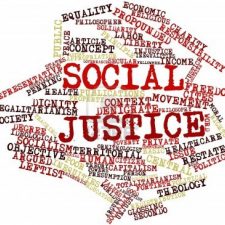 “Intersectionality has convinced many within evangelicalism to: Replace theology with victimology. Swap pastors with sociologists. Trade theologians for political activists. We will never achieve “reconciliation” and “unity” and “equality” through social justice. The SBC has made a serious mistake and one that without stern correction will be the tipping point for an already vulnerable and numerically decreasing Convention of churches.”
“Intersectionality has convinced many within evangelicalism to: Replace theology with victimology. Swap pastors with sociologists. Trade theologians for political activists. We will never achieve “reconciliation” and “unity” and “equality” through social justice. The SBC has made a serious mistake and one that without stern correction will be the tipping point for an already vulnerable and numerically decreasing Convention of churches.”
(Josh Buice – Delivered By Grace) The Southern Baptist Convention fought a 30-year long battle for the Bible known as the Conservative Resurgence, but what happened in Birmingham, Alabama might just prove to validate the woke movement for the largest protestant denomination in America….
Did the SBC abandon the sufficiency of Scripture? Many people have made that claim for years citing pragmatism as the modus operandi of the Convention—but this time it happened in an official capacity as a resolution.
Last year prior to the annual meeting of the SBC in Dallas, Texas—I wrote an article titled, “The SBC at the Intersection of Intersectionality” where I warned of the dangers of identity politics within the Convention. I likewise preached on the dangers of intersectionality in a sermon back in January of 2019 in the pre-conference to the annual G3 Conference in Atlanta. Not only was I heavily criticized for the article and sermon—the leaders of the Convention openly denied that it was a real threat. Here we are just a few months later and the entire SBC has officially adopted Resolution 9 – “On Critical Race Theory and Intersectionality.” It’s official—we are encouraged to use these worldly ideologies and philosophies as helpful tools to diagnose and address social ills in a depraved world. The use of such woke tools will not end well for the SBC. We were given an opportunity to stand, and we remained seated. We were given a test on our commitment to the Scriptures and we failed.
The Woke Downgrade
Intersectionality was originally coined in 1989 by Kimberlé Crenshaw, a political activist and radical feminist, in order to describe oppression against women on specific different points of intersection. Today, it’s used in a more broad sense. In short, intersectionality as it has been defined, is discrimination based on overlapping layers of individual classes of discrimination. It’s when a person is subjected to discrimination for more than one classification such as a woman who is black and lesbian. She would classify, under this line of reasoning, for three basic discriminatory marks—being a woman, who is black, and is also a lesbian. According to the definition of intersectionality, where these three marks “intersect” is the focus of her greatest and most severe discrimination which places her at the greatest risk of oppression in our culture.
Research
Progressive (Social Justice) “Christianity”
H/T The Aquila Report